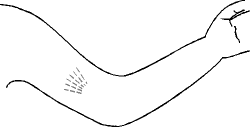|
The
birth control pill
The
birth control pill has several forms ... pills containing chemical
variants of hormones secreted by the body: estrogen and progesterone.
These hormones prevent the start of ovulation.
Most pills combine these two hormones, but certain contain only progesterone.
Your doctor will determine which pill and the hormonal dosage which
is best for you.
Micro progestative pills: all the pills are the same color and dose.
They are taken at the same time every night without exception.
Forgetting and/or taking it late can mean pregnancy...
Classic pills: you can take them at night or in the morning, without
varying the routine once you have chosen one or the other. Most
boxes contain 21 pills corresponding to 4 weeks: in other words, the
pill should be taken for 3 weeks (3 times 7 days with a break the fourth
week (7 days). In general, the days are written on the blisters (placket)
as a reminder. In case you forget: no matter when you
remember, you should take the forgotten pill immediately and then start
the cycle again normally (even if the forgotten pill was taken one hour
earlier...). Being late less than 12 hours is probably not risky ...
Between 12 and 24 hours, the risk of becoming pregnant is theoretically
weak (be careful anyway). More than 24 hours and it's a good idea to
use another means of protection (condom for example) for 7 days for
each forgotten pill. There is the possibility of spotting if you forgot
your pill for more than 24 hours: don't confuse it with your period
...
Reliability: safe contraceptive method, as long as you absolutely
follow the rules (rigorous respect for the pill-taking protocol).
Advantages: most women have no problems; there exists a variety
of pills adapted to various situations. Once you are used to taking
the pill at a regular time (for example, taking the pill in the evening
after brushing your teeth), relations with your partner are stress-free.
Inconveniences: smoking is not recommended. Depending on the
person, there may be certain side effects, but they are rare and relatively
harmless: nausea and tender breasts (which stop after several cycles),
weight gain (curable during the first months by an effort to eat healthier
and do sports), sometimes no period in the 4th week (which can be worrisome
of course). If there is spotting between periods, consult a doctor (without
an organic cause verified by a check-up, it might be necessary to change
the pill). Other side effects are listed on the product information
sheet in each box: the list is too long to be repeated here! But their
occurrence is rare. However, you should stop taking the pill if you
suffer from headaches which resist classic treatment (aspirin, ibuprofen
...), unusual migraines, or blurred vision possibly accompanied by a
rise in blood pressure. Don't forget that the pill, like any other medication
taken over a long period of time require regular medical monitoring.
The
Norplant® implant
The Norplant®
system is made up of six soft capsules, contained in a Silastic®
tube filled with a synthetic progestin (Levonorgestrel). The capsules
are inserted under the skin in the woman's upper arm during a minor
surgical intervention. What Norplant® implants do is to change the
endometrium by thickening the cervical mucous making it difficult for
the spermatozoids to pass through, and stop ovulation in about half
the menstrual cycles after the first year.

After the
implant, be careful that the area remains dry and clean for at least
48 hours. The incision can get infected if the area gets wet when you
bathe. Leave the bandage tightened with the gauze in place for 48 hours
and then replace it with a Band-Aid until the incision is healed (about
3 to 5 days). The area around the incision will be bruised, swollen
or sensitive for several days. That's normal. You can return to work
immediately. Avoid bumping it, carrying heavy things or pressing too
firmly on the incision area. Once healed, the area of the incision can
be touched and washed as usual (even pressure).
It is necessary to remove the capsules 5 years after their insertion
but new capsules can be inserted immediately if you wish.
Reliability: Norplant® implants assure a highly efficient
contraception for up to 5 years. The contraceptive effect of the implants
starts once the capsules are inserted and continue until they are removed
(can stay for up to 5 years starting from their insertion).
Advantages: the relations with your partner are stress-free:
no fear of forgetting! The implant doesn't require a specific monitoring
but you still need to go for regular visits to your gynecologist ...
Inconveniences: changes in the menstrual bleeding (especially
irregular periods) are common, especially during the first 6 to 12 months
following the insertion. These changes are rarely a health risk. Certain
medicines (Rifampicine® and most antiepileptic medicines) can decrease
the efficiency of the implants. That is why you should advise your doctor
if you start taking new medication. Other minor side effects are weight
gain, small headaches and sensitive breasts. The symptoms aren't dangerous
and disappear progressively.
Attention: If you wait longer than 5 years to have the capsules removed,
the risk of becoming pregnant is increasingly high and the risk of an
extra-uterine pregnancy increases greatly.
Warning
signs for implant users:
# late menstruation after several months of regular cycles (can be a
sign of pregnancy)
# sharp pains in the lower stomach (can be a symptom of extra-uterine
pregnancy)
# heavy bleeding (twice as long or twice as heavy as usual) or prolonged
bleeding (more than 8 days)
# pus or bleeding at or near the capsules' insertion
# expulsion of a capsule
# migraine (vascular headaches), frequent and very severe headaches
or blurred vision.
Contact your doctor if you notice one if the above mentioned problems.
|

